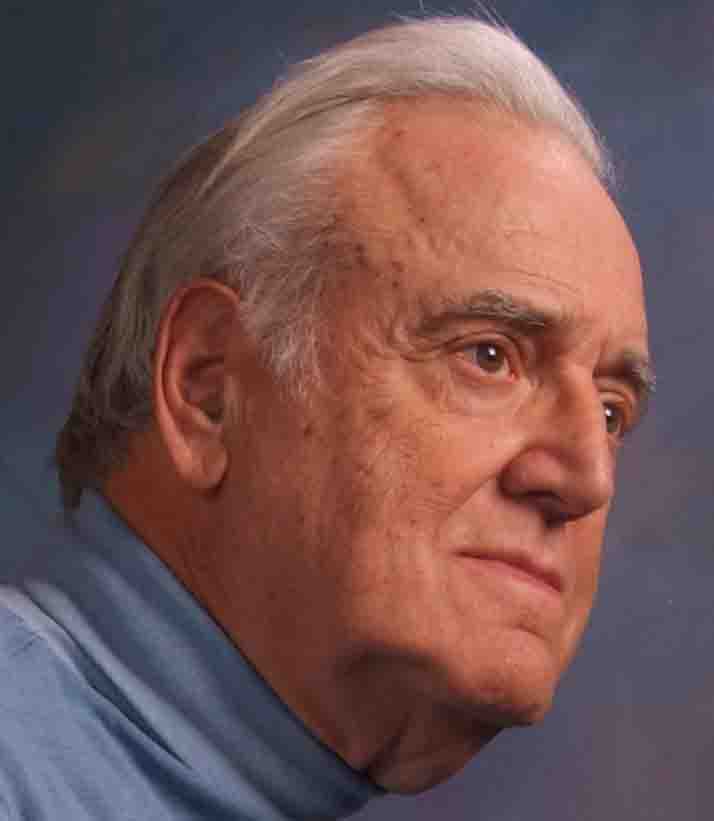This was, at the same time, the high tide of liberalism as Lyndon Johnson's "Great Society" rolled through Congress and as Barry Goldwater, the "conscience of conservatism" suffered a crushing defeat in the 1964 election.
The clash between the liberals and the libertarians generated heated and exciting debates, whereby both contesting ideologies were refined and clarified.
Little did the liberals suspect then that three and four decades hence, libertarianism would become a significant player in American politics.
Where liberals and libertarians meet -- and part. Libertarianism does not fit in comfortably with either the Democrats or the Republicans, which explains the determined, if futile, persistence of the Libertarian Party. However, when faced with the forced choice of the lesser of two evils, most Libertarians have sided with the Republicans.
Now that is beginning to change, as many libertarians are deserting the GOP and joining the liberal Democrats in a fragile alliance of convenience. They are doing so as they find their principles of minimal government, personal autonomy, fiscal responsibility and church-state separation massively betrayed by the theocrats and crypto-fascists that have taken control of the Republican Party. At the same time, the Republicans continue to proclaim the libertarian ideals of the free market and privatization, as they cut back on government services.
The common ground between the liberals and libertarians is found in their endorsement of personal autonomy, as articulated by John Stuart Mill: "Over himself, over his own body and mind, the individual is sovereign." (On Liberty, Ch. 1). Accordingly, the libertarians (and less enthusiastically, the liberals), oppose the criminalization of so-called "victimless crimes," such as prostitution, homosexuality, and "recreational" drug use, and both insist that the government has no business interfering with a woman's personal decision whether or not to continue a pregnancy.
Notwithstanding this ground of common agreement, the differences between liberalism and libertarianism are fundamental and irreconcilable.
To begin, the libertarian's advocacy of completely unfettered individual "sovereignty" extends to property rights and economic activity. Thus the libertarian is steadfastly opposed to zoning restrictions or to seizure of property by eminent domain. And the libertarian endorses, without qualification, the unrestricted free market, confident that the summation of individual "capitalist acts by consenting adults" (Robert Nozick) will result in optimal results for all.
On the other hand, the liberal, while not hostile to free markets and private property, insists that both must be regulated and occasionally be curtailed "in the public interest."
And why shouldn't one extend unrestricted personal liberty to include property and a liberty of economic activity? What justifies the liberal's insistence upon government regulation of the economy? The answer lies in two principles endorsed by both liberals and libertarians. First, the "no harm principle:" "the only purpose for which power can be rightfully exercised ... is to prevent harm to others. (J. S. Mill). And second, the "like liberty principle:" "Each person is to have an equal right to the most extensive total system of equal basic liberties compatible with a similar system of liberty for all." (John Rawls)
The liberal will argue that the libertarian fails to recognize the full implications of these principles, for, if he did, the libertarian would find that an unconstrained free market results in harm to others and to a loss of their liberties. Furthermore, unconstrained free markets are self-eliminating, since http://www.igc.org/gadfly/progressive/economics.htm#theory">they lead to cartels and monopolies. Thus the necessity for regulation and anti-trust laws.
The liberal's insistence that unrestricted property rights and unregulated free markets can be socially harmful and contrary to the public interest leads to another fundamental and irreconcilable difference with the libertarian:
Society and "The Public." Simply stated, the libertarian denies the existence of "society" and "the public." If this sounds outlandish, consider the following observations by three prominent libertarians. First, Margaret Thatcher: "There is no such thing as society – there are individuals and there are families." Next Ayn Rand: "There is no such entity as 'the public,' since the public is merely a number of individuals." Finally, Frank Chodorov: "Society is a collective concept and nothing else; it is a convenience for designating a number of people."
The implications of these pronouncements are radical in the extreme, for if there is no such thing as "a public," it follows that there are no "public goods" or "public interest," apart from summation of private goods and interests. Moreover, if there is no society, it follows that there are no "social problems," there is no "social injustice," and there are no "victims of society." The poor presumably choose their condition; poverty is the result of "laziness" or, as the religious right would put it, a "sin." There are further implications. Since there is no such thing as a "public," taxation for the support of such "so-called" public institutions as education, libraries, the arts, parks and recreation, is coercive seizure of private property, or "theft."
(Note: You can view every article as one long page if you sign up as an Advocate Member, or higher).





